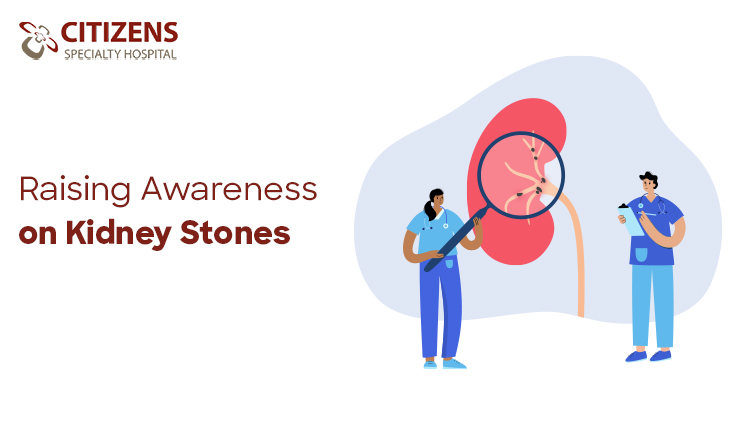
When it comes to kidney stones, there are many misconceptions. People often think that the kidney stones occur only in elderly people. But kidney stones can cause excruciating pain and even lead to serious health complications if not treated appropriately. This blog post will raise awareness about kidney stones and dispel some myths surrounding them. We’ll also provide tips on preventing them and what to do if you think you may have one.
Kidney stones are a common ailment that can cause severe pain. They are formed when there is an excess of certain minerals in the urine. The most common type of kidney stone is calcium oxalate. Other types include uric acid, struvite, and cystine.
Kidney stones often go undiagnosed because they do not always cause symptoms. The most common symptoms are severe pain in the abdomen, back, or side, which can come and go as the stone moves through the urinary tract. Other symptoms include:
Kidney stones can cause excruciating pain and lead to severe complications if left untreated. Hence, it is essential to consult a specialist from the nephrology hospital in Hyderabad.
Some of the most common factors that cause kidney stones include:
– Dehydration: When the body is not adequately hydrated, urine becomes more concentrated and can lead to the formation of kidney stones
– Diet: A diet high in animal protein, salt, and sugar can increase the risk of kidney stones.
– Family history: If there is a family history of kidney stones, there is a chance of developing this condition.
– Medical conditions: Certain medical conditions, such as gout or inflammatory bowel disease, can increase the risk for kidney stones.
There are several treatment options for kidney stones, depending on the size, location and severity of the symptoms.
Small kidney stones may pass through the urinary tract on their own and can be treated with pain relief medication and increased fluid intake. Drinking plenty of water is essential to flush out any small stones that may be present in the urinary tract.
More invasive treatments may be necessary if a stone is too large to pass on its own or if it is causing severe pain or blockage. These include Shock Wave Lithotripsy (SWL), which uses sound waves to break the stone, or ureteroscopy, which involves inserting a tiny camera and tools into the urinary tract to remove the stone.
Surgery may sometimes be necessary to remove a large kidney stone. This is typically only done in cases where other treatments have failed or when there is a risk of severe complications from the stone.
When it comes to kidney stones, the best offence is a good defence. That means drinking plenty of fluids and eating a healthy diet with low sodium and animal protein.
If there are any symptoms of kidney stones, such as severe pain in your side or back, blood in your urine, or difficulty urinating, it’s essential to see a doctor immediately. If anyone is diagnosed with kidney stones, it is recommended to visit the best nephrology hospital in Hyderabad, where they have a prominent team of specialists who will take all measures to ensure that their patients are well taken care of.
The doctor will likely order a series of tests to diagnose the kidney stones and determine the best course of treatment. Treatment options include medication, surgery, and lifestyle changes.
It’s essential to drink plenty of fluids and avoid certain foods that can make the condition worse. As advised, it is suggested that an experienced doctor is consulted from the best nephrology hospital in Hyderabad to monitor your condition regularly and ensure the kidney stones don’t recur.
The Department of Nephrology at Citizens Specialty Hospital offers comprehensive nephrology services for almost all types of kidney disorders and diseases under one roof. The unit caters to patients with acute kidney injury, chronic kidney disease, hemodialysis, peritoneal dialysis, renal transplantation, and complex auto-immune conditions.
We hope this article has helped raise awareness regarding kidney stones and their causes. As we have seen, there are many potential risk factors for developing kidney stones, but by making some lifestyle changes and being aware of these risks, it can be prevented. If one thinks that there is a risk of developing kidney stones, one should talk to a doctor and undergo the advised tests.